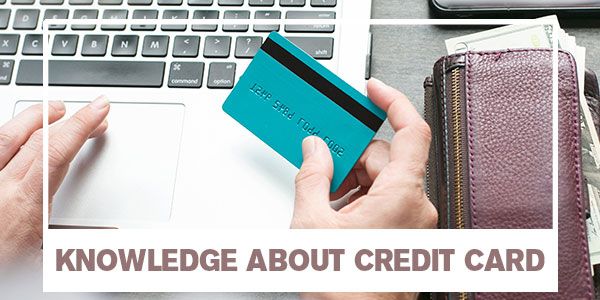What you need to know about credit card processing and payment

When you buy an item, you pay with your credit card. Then by the next month’s payment due date, you pay off your card balance.
Is that what it’s all about?
Credit cards have become the most convenient way to pay for your purchases. Be at offline physical shops, or at e-commerce online websites.
If you are a frequent credit card user, and want to understand more, about how these cards function, and how are your monthly payments calculated by your card issuer, then this post is meant for you!
It is not at all a simple process, that you swipe your card, and the merchant / shopkeeper gets the money into his account.
There are so many underlying steps and processes involved, that by digging deep, you might end up getting more confused!
But, to become a responsible credit card user, you need to know what is it that you are holding in your hand, and how does it work behind the screen!
.
Credit card process - Explained:
To simplify the credit card process or how a credit card transaction works, we have divided the whole phenomenon among 4 distinct parties.
These include, you (the consumer), your credit card issuer, the payment acquirer, and the merchant.
As soon as you swipe your card, at the cash counter, your card information is gathered by the swiping machine, which will then be sent to the acquiring bank to initiate the payment.
The acquiring bank will then request your credit card issuer to pay the acquirer on your behalf.
If your card has sufficient limits, then your card issuer allows the transaction, else it will show up as denied.
If the payment gets approved, then the issuer allows the acquirer to enter the ‘to be deducted’ amount in its database.
The merchant receives the amount from the acquirer within 1 or 2 working day(s). It can take more time, if some discrepancy occurs or there are other issues.
Now, if you are sensing that there must be some digital platform, based on which the whole transaction takes place, then you are pretty correct
This platform is what we call the card network. This service is provided by leading companies like VISA, MasterCard, DISCOVER, and many others.
In case of online transaction on e-commerce websites, there functions another third party service provider, as there’s no physical card swipe machine
This is what we call a Payment Gateway.
Examples are RazorPay, Paypal (gateway service), Authorize.net, and all. This Gateway establishes the primary link among all the payment modules (those 4 distinct parties involved).
How credit card payment works.
For the Merchant:
Even though this post is not written from the merchant’s perspective, still this part is included for convenience. I believe it will improvise the subject for a better completion!
Well, after the transaction gets completed, the merchant doesn’t at once receive the money. It will take 24 hrs to 72 hrs time, for the amount to get reflected in the merchant’s account.
That’s because the transaction, done between the consumer and merchant, is just a series of authorized requests, getting developed for allowing the money to switch hands.
After recording all the authorized and approved requests successfully, the credit card issuer sends the money, at a later time, to the acquirer, which later on sends the amount to the merchant’s account.
This whole process has an interchange fee, also known as discount fee, which is deducted from the merchant’s total payment amount!
For you- the consumer:
After this transaction amount is deducted from your credit limit, you will have to pay this amount back to the credit card issuer, in due time.
But, the payment you make is based on your capacity. You can either pay off the amount in full, by the next payment date, or you can only make the minimum payment, or an amount lower than the actual amount you owe, to the bank.
Your credit card issuer will notify you, each month, about the minimum amount you have to pay, to avoid penalties, and late fees.
This minimum amount is typically 3%to 50%, but can vary from bank to bank.
If you are keeping up with the normal minimum payments, then it’s very good! But, you are always advised to pay off your card in full, each month, to avoid complications.
